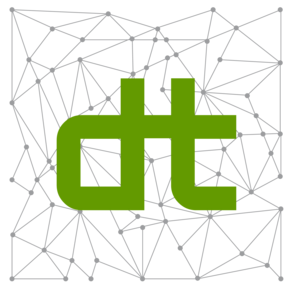Research Focuses
Digital platform ecosystems
Digital platforms dominate increasingly more areas of our lives and are penetrating more and more industries. Providers such as Apple and Google in the mobile application field or SAP and Salesforce in the enterprise software field have created ecosystems in which third-party developers offer countless applications. But digital platforms are also on the advance in many other industries: in areas such as automotive, finance, healthcare, agriculture, but also development aid and social commitment, digital platforms are changing established structures. The goal of this research area is to better understand value creation processes on platforms. This enables platform operators to better control their platforms (so-called platform governance). Furthermore, the implications of the increasing "platforming" on existing industries but also on society are to be examined.
Digital working environments
In the research focus on digital work environments, the framework conditions of IT work and their effects on employees are examined. Current research projects deal with the composition of IT project teams, the impact of agile project management methods on the well-being of IT workers, the understanding and effects of shock events on termination behavior, and the embeddedness of IT workers in their project and organization.
Composition of IT project teams
In order to be able to perform complex and knowledge-intensive tasks, IT projects are often carried out in teams. Teamwork makes it possible to bring together the necessary diverse expertise of different people directly for the project work. To leverage this potential, however, efficient and productive team processes must be promoted and negative tendencies must be mitigated. To better understand the complex interaction of different people in IT projects, we investigate structural team processes and their effect on team characteristics and results. In doing so, we take into account the specific characteristics of IT work such as knowledge-intensive tasks, homogeneous demographic data and typical work practices. A better understanding of team processes can identify and promote the foundations for productive teamwork.
Agile project management and well-being
IT projects are increasingly controlled by means of an agile project management approach whose core element focuses on the employees working on the project ("valuing people over processes"). Within the research project the socio-technical design of agile working environments as well as the effects, for example, on motivation, leadership and control issues are investigated. Practical implications for the implementation of agile projects arise with regard to the design of new working environments, forms of collaboration and teams.
Termination behavior of IT employees
Employees are a central resource in IT projects. The fluctuation of employees is particularly high in the IT environment and thus poses a great challenge to project managers and IT companies. The termination of an IT employee is critical in two respects. Firstly, since the IT industry is a knowledge-intensive industry with implicit knowledge, the departure of an employee results in a large loss of knowledge, which cannot easily be compensated by hiring a new employee. It is estimated that the departure of an IT employee causes costs many times the annual salary of the IT employee. Secondly, it is difficult to find a replacement on the labor market due to the lack of skilled workers. According to an estimate by the industry association "bitkom", there are approximately 55,000 unfilled IT positions in Germany. This shortage has existed for years and the Federal Employment Agency estimates that it will continue to exist in the future despite increasing numbers of graduates and first-year students. In this research project we investigate the influence of shock events on the termination behavior of IT employees. On the one hand, a better understanding of shocks in IT projects shall be developed. Furthermore, the effects on IT employees, i.e. their quitting behavior and different forms of embeddness, will be investigated.
Service innovations through digital technologies
The provision of digital services challenges companies with individualization and socio-technical integration. The appropriate use of information for individual adaptation and the integration of products, services and software require user-centric innovation methods in the conception and agility in the provision of services.
Augmented Reality for flexible service processes
The use of innovative technologies such as Augmented Reality (AR) and Virtual Reality (VR) can help companies to optimize services through service innovation and ensure competitiveness. Due to their immersive way of presenting information, AR/VR technologies have the potential to support employees in the provision of services. Many services require intensive exchange with interest groups such as customers or partner companies in order to help visualize products and processes and intensify their exchange.
Since AR/VR technologies have so far hardly found their way into the everyday life of companies due to technological barriers, there is a great need for research on AR/VR applications in the service context. With the help of human-centered research, real use cases could be identified and piloted. This would particularly support small and medium-sized enterprises (SMEs), which usually have little resources and expertise to transform their service processes into smart services with AR support.


